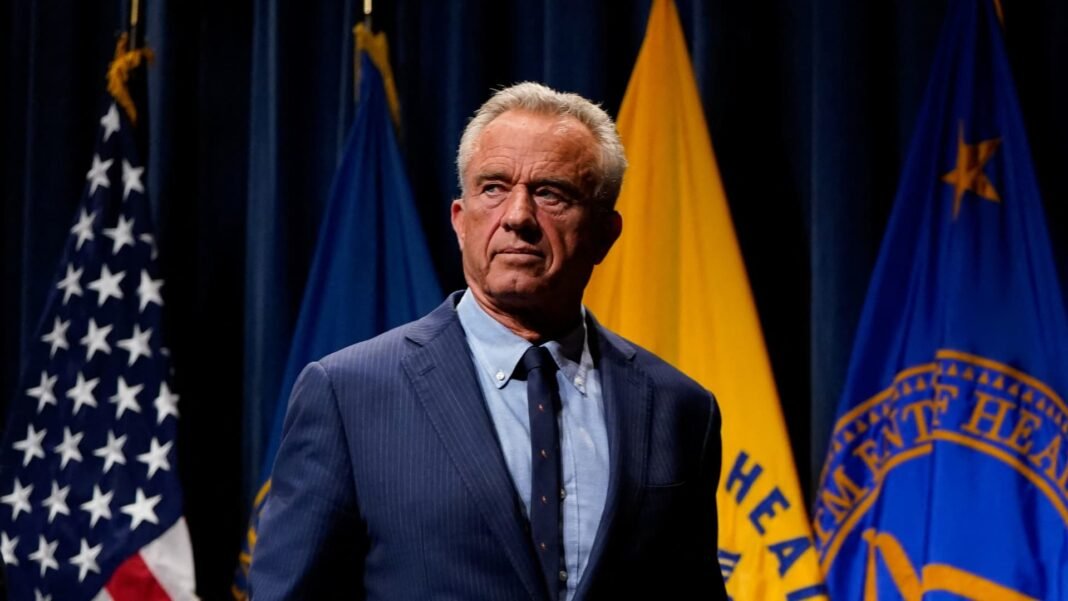Notable changes to U.S. Vaccine Advisory Panel Spark Intense Debate
Major Overhaul of Vaccine Advisory commitee Raises Alarms
The U.S. Department of Health and Human Services (HHS) has recently dismissed all 17 members of the Advisory Committee on Immunization Practices (ACIP), a pivotal group that provides vaccine guidance to the Centers for Disease Control and Prevention (CDC). This sweeping action, directed by HHS Secretary Robert F. kennedy Jr., is intended to “rebuild public confidence” in vaccines but has ignited considerable controversy among medical professionals and public health experts.
ACIP’s role is fundamental: it rigorously reviews vaccine data, sets eligibility standards for immunizations, and influences insurance coverage policies. The sudden removal of its entire membership disrupts a well-established process regarded as vital for upholding scientific rigor in vaccination policymaking.
Public Health Experts Warn About Potential Fallout
Health authorities caution that this decision might inadvertently fuel vaccine hesitancy rather than reduce it. Lawrence Gostin, an expert in public health law, criticized the move as injecting political bias into scientific deliberations, thereby undermining trust not only in vaccines but also in federal health agencies.
The United States is currently grappling with declining vaccination rates against illnesses such as measles and pertussis-diseases once largely controlled through routine childhood immunizations. Experts fear that destabilizing ACIP could worsen these trends amid a global resurgence of preventable outbreaks linked to reduced immunization coverage.
Implications for Disease Prevention Strategies
- A potential slowdown or weakening of vaccine recommendations may delay responses to emerging infectious diseases like monkeypox or new influenza strains.
- The upcoming academic year could see increased vulnerability among schoolchildren if vaccination protocols become less stringent or more optional under new committee leadership.
- An ongoing measles outbreak combined with heightened international travel during summer months raises concerns about diminished herd immunity across communities.
Kennedy’s Criticism Versus Established Facts About ACIP
Kennedy has publicly accused ACIP members of conflicts of interest and claimed they function merely as “rubber stamps” approving vaccines without adequate scrutiny. However, infectious disease specialists have strongly rejected these allegations, emphasizing ACIP’s longstanding transparency measures and strict conflict-of-interest policies maintained over decades.
Tina Tan,president of the infectious diseases Society of America,labeled these accusations unfounded and warned they risk eroding trust across all age groups by undermining established scientific frameworks guiding immunization practices nationwide.
Robust Safeguards Ensuring Panel Integrity
- Candidates disclose any potential conflicts before participating in discussions or votes related to specific vaccines where such conflicts exist.
- If conflicts arise during deliberations, affected members recuse themselves from decision-making processes accordingly.
- This system guarantees impartial evaluations grounded solely on evidence rather than personal interests or external pressures from industry or politics.
Lack of Transparency Around New Appointments Fuels Concern
No official timeline has been announced regarding replacements for the dismissed committee members; though, an upcoming meeting scheduled between June 25-27 will reportedly be conducted entirely by newly appointed individuals whose identities remain undisclosed at this time.
Cautious observers worry Kennedy may appoint individuals who share his skeptical views on vaccines-a shift that could politicize guidance by emphasizing perceived risks over benefits or promoting optional rather than recommended vaccinations nationwide. Such changes threaten further declines in vaccination rates already trending downward as 2020 according to CDC data showing childhood immunization coverage falling below 90% for several key vaccines compared with pre-pandemic levels above 95% nationally.
The wider Impact beyond Policy Makers’ Circles
“This isn’t simply about replacing one advisory panel,” said Dr. Neil Maniar from Northeastern University’s public health department.
“the consequences extend far beyond policy rooms-they affect families deciding whether their children recieve vaccinations and national readiness against preventable diseases.”
Pharmaceutical Industry Faces Uncertainty Amid Regulatory Shifts
The major pharmaceutical companies behind leading COVID-19 vaccines-including Moderna, Merck, Pfizer-BioNTech-are navigating an uncertain regulatory landscape following these developments. Analysts offer mixed perspectives:
- Daina Graybosch from Leerink Partners warns existing recommendations might be overturned depending on new panel viewpoints but awaits clarity pending appointments;
- BMO Capital Markets’ Evan Seigerman considers this a negative factor yet anticipates limited overall impact given recent FDA leadership appears supportive toward vaccine innovation;
This uncertainty reflects broader market apprehensions about how political dynamics may influence future approval timelines or alter post-market surveillance standards essential both for safeguarding public safety and fostering innovation within biologics sectors worldwide-which attracted record investments exceeding $50 billion globally last year alone according to industry reports.
Navigating Future Challenges Within U.S Vaccination Policy Frameworks
Kennedy’s actions contradict earlier assurances made during his confirmation hearings where he pledged not to interfere with ACIP’s composition-a promise now broken according to Senate Health Committee Chair Bill Cassidy who expressed concern over appointing individuals lacking expertise beyond mere skepticism toward vaccines.
Cassidy remains actively engaged with HHS leadership aiming at preventing further erosion within advisory structures critical both scientifically and politically amid rising misinformation campaigns targeting immunizations across social media platforms reaching millions daily worldwide.






